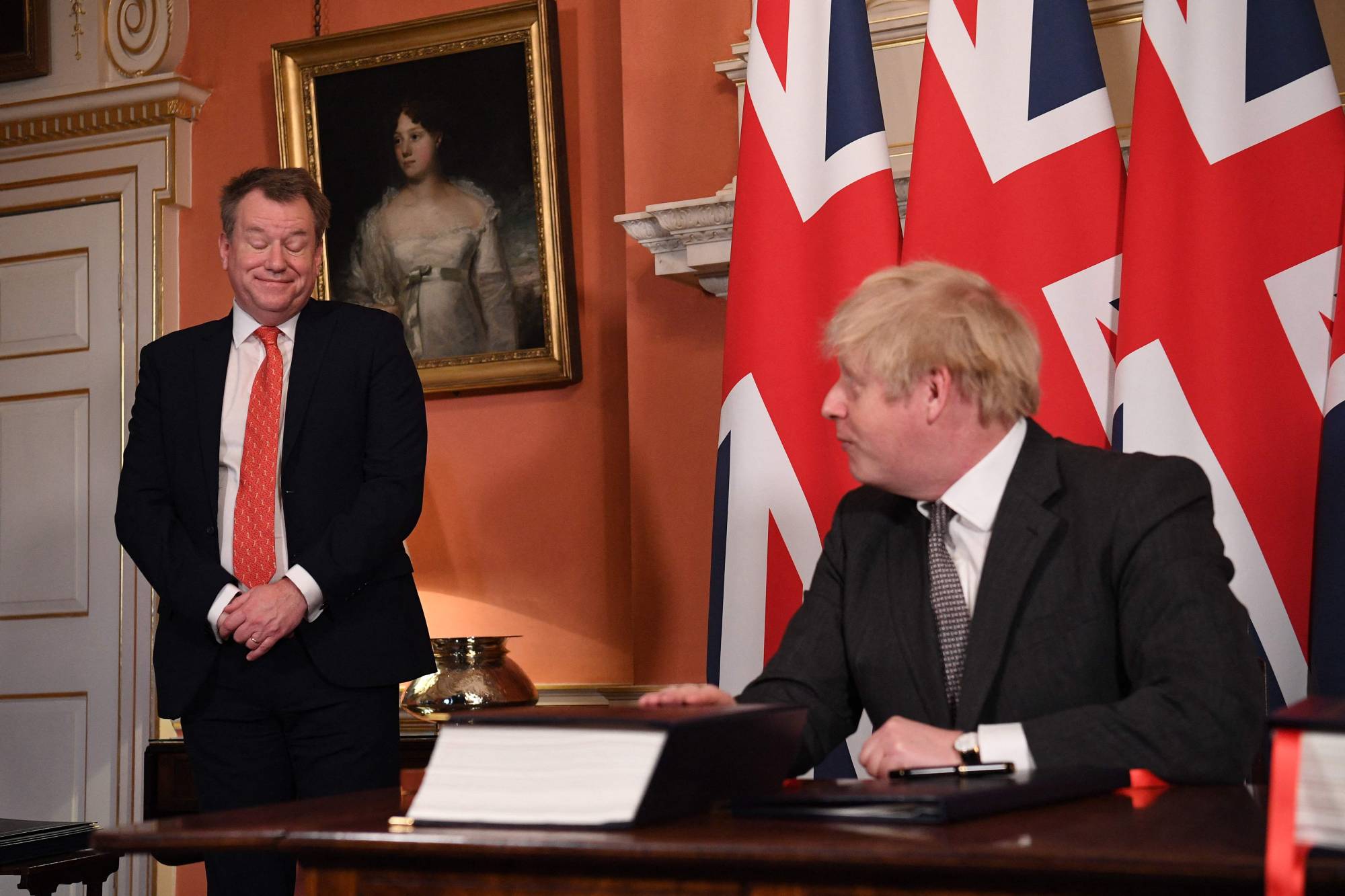In the months after Boris Johnson signed his post-Brexit trade deal with the European Union, the coronavirus masked the economic damage of leaving the bloc. As the pandemic drags on, the cost is becoming clearer — and voters are noticing.
Brexit has been a drag on growth. It brought new red tape on commerce between Britain and its largest and closest market, and removed a large pool of EU labor from the country on which many businesses had come to rely. The combination has exacerbated supply chain shortages, stoked inflation, and hampered trade.
The prime minister hailed the signing of the trade accord almost a year ago as the moment when Britain took back control of its destiny. If it was, voters appear to be increasingly unhappy with the result. According to a November poll by Savanta Comres, a majority of the British population would now vote to re-join the the EU — including one in ten who voted to leave in the 2016 referendum. In June, only 49% wanted to reverse Brexit.


















With your current subscription plan you can comment on stories. However, before writing your first comment, please create a display name in the Profile section of your subscriber account page.